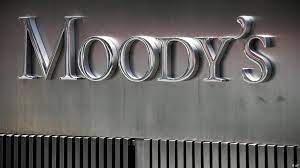International credit rating agency Moody’s has rated Ghana among African countries with the highest shares of nonresident participation in their local currency debt markets.
Nonresident investors held 18.5 percent of Ghana’s local currency public debt in 2020, according to central bank data.
“One important aspect of financial market development is the participation of nonresidents in the local currency (LC) government bond market. In Africa, South Africa, Egypt, Nigeria and Ghana have the highest shares of nonresident participation in their LC markets,†the rating agency said.
It said the presence of non-resident investors in the Ghanaian market is supported by policies that reduce capital account restrictions on foreign participation as well as investors’ search for yield.
According to Moody’s, its experience from other emerging markets showed that the inclusion of benchmark local currency government bonds in global indices provides a boost to capital market deepening.
However, it added, the benefits from a broader funding base and the outsourcing of currency risk to foreign investors are balanced against the procyclical nature of portfolio flows, with potential spillovers to exchange rate volatility and higher local currency borrowing costs in times of risk aversion, in addition to the potential drawdown of forex reserves.
“Foreign participation in Ghana has been more volatile over the past few years in light of their less diversified economies and higher idiosyncratic risks, including commodity price dependence,†said Moody’s.
It said driven by fiscal reforms and new hydrocarbon developments, as Ghana emerged from its 2016 fiscal crisis foreign investors increased their exposure to the local currency debt market, aided by the government’s loosening of investment restrictions.
But thin forex reserve coverage of external debt, Ghana’s weak debt affordability and its vulnerability to depreciation risks put it among the most exposed sovereigns to funding shocks, the report added
It stated that continued foreign participation will depend on yields being high enough to compensate for mounting fiscal risks, keeping funding costs elevated.
Business24





